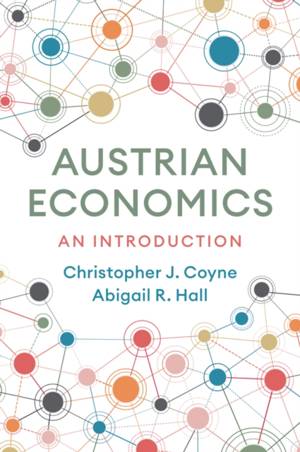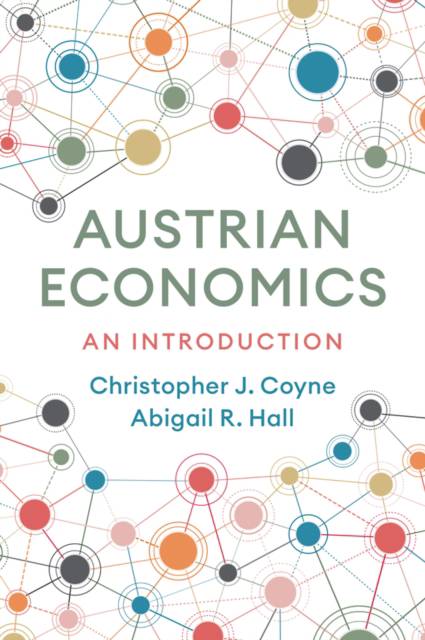
Bedankt voor het vertrouwen het afgelopen jaar! Om jou te bedanken bieden we GRATIS verzending (in België) aan op alles gedurende de hele maand januari.
- Afhalen na 1 uur in een winkel met voorraad
- In januari gratis thuislevering in België
- Ruim aanbod met 7 miljoen producten
Bedankt voor het vertrouwen het afgelopen jaar! Om jou te bedanken bieden we GRATIS verzending (in België) aan op alles gedurende de hele maand januari.
- Afhalen na 1 uur in een winkel met voorraad
- In januari gratis thuislevering in België
- Ruim aanbod met 7 miljoen producten
Zoeken
€ 30,95
+ 61 punten
Uitvoering
Omschrijving
How can people peacefully cooperate with others to improve their lives? This important book answers this question by introducing readers to the Austrian school of economics. Austrian economics is a heterodox tradition with a distinct philosophy of science stressing purposive individual action, subjective value, the unique nature of economic knowledge, and the importance of prices and markets for coordination. Beginning in Austria in the 1870s with the work of Carl Menger, the ideas of those working in this tradition shaped the field of economics as we know it today. Coyne and Hall tell the story of the key thinkers and ideas in the Austrian school of economics. In doing so, they demonstrate the tradition's ongoing relevance to a wide range of contemporary issues including entrepreneurship, development, government regulation, artificial intelligence, business cycles and recessions, infectious diseases, recovery from natural disasters, and war. Comprehensive and accessibly written, Austrian Economics: An Introduction is an indispensable resource on its topic. Readers will walk away with a better understanding of economics and an appreciation of the marvel of human cooperation How can people peacefully cooperate with others to improve their lives? This important book answers this question by introducing readers to the Austrian school of economics. Austrian economics is a heterodox tradition with a distinct philosophy of science stressing purposive individual action, subjective value, the unique nature of economic knowledge, and the importance of prices and markets for coordination. Beginning in Austria in the 1870s with the work of Carl Menger, the ideas of those working in this tradition shaped the field of economics as we know it today. Coyne and Hall tell the story of the key thinkers and ideas in the Austrian school of economics. In doing so, they demonstrate the tradition's ongoing relevance to a wide range of contemporary issues including entrepreneurship, development, government regulation, artificial intelligence, business cycles and recessions, infectious diseases, recovery from natural disasters, and war. Comprehensive and accessibly written, Austrian Economics: An Introduction is an indispensable resource on its topic. Readers will walk away with a better understanding of economics and an appreciation of the marvel of human cooperation.
Specificaties
Betrokkenen
- Auteur(s):
- Uitgeverij:
Inhoud
- Aantal bladzijden:
- 224
- Taal:
- Engels
Eigenschappen
- Productcode (EAN):
- 9781509547067
- Verschijningsdatum:
- 6/04/2026
- Uitvoering:
- Paperback
- Formaat:
- Trade paperback (VS)

Alleen bij Standaard Boekhandel
+ 61 punten op je klantenkaart van Standaard Boekhandel
Beoordelingen
We publiceren alleen reviews die voldoen aan de voorwaarden voor reviews. Bekijk onze voorwaarden voor reviews.









